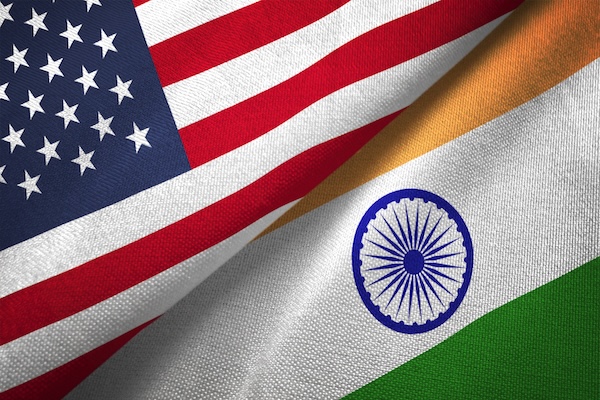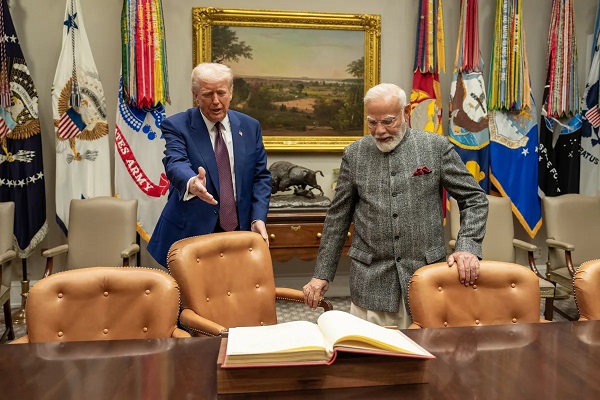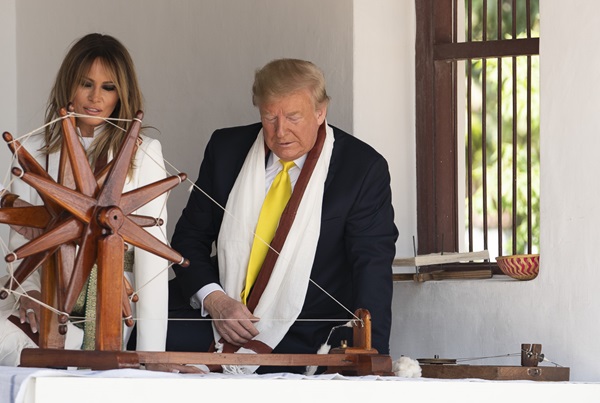.png)

T.K. Arun, ex-Economic Times editor, is a columnist known for incisive analysis of economic and policy matters.
October 27, 2025 at 4:27 AM IST
It was excellent journalism on the part of Pranshu Verma and Ravi Nair to do the Washington Post story on the government having persuaded LIC to invest in Adani at a time when global investors were hesitant in the wake of an American case against Adani for having bribed officials in India and for having raised funds from American investors on false pretences. Kudos to the two, and to WaPo for publishing the story that Indian publications would have been reluctant to.
That said, should we be so indignant at LIC rushing to the aid of an Indian megacorp in trouble? Or are we upset that the government, according to the report, acted as Camelot, and dispatched a knight in shining armour to perform the rescue act? Any outrage over depicting Adani as a fair damsel in distress is perfectly understandable, but is the presumed stink over the relationship between the government and big business as real as it is construed to be?
Adani is one of India’s biggest and most successful business conglomerates that has built sizeable chunks of India’s infrastructure — ports, giant thermal power plants and even bigger renewable power generators — and is now venturing into data centres, besides running airports. Many banks lend to it, lots of Indian retail investors and financial institutions have invested in the company.
It is distinctly against the interest of the Indians, severally and collectively, for Adani businesses to fail. If Adani or Ambani fail to service their debt raised abroad, because they fail to roll over a chunk of their debt, it would not be just these groups that suffer a credit downgrade. All of India Inc would face higher borrowing costs the next time they try to raise capital abroad.
It is in the interest of Indian companies, Indian lending institutions, Indian workers whose retirement savings and Indian savers, whose mutual fund SIP contributions, are invested in megacorp stocks, to see that major Indian companies continue to thrive. Nor has LIC or other investors in Adani picked a loser when they put their money in Adani.
Does this mean that the Indian people should condone wrongdoing by companies simply because they are too big to fail? It does not. If a company’s conduct is such that it harms other companies and defrauds its investors, it should be punished, and not just not protected.
What was the charge against Adani in the US? The principal charge is that it paid bribes to Indian bureaucrats to win a solar power contract in Andhra Pradesh. Not just in Jagan Reddy-run Andhra Pradesh, not anywhere in India, is any major government-mediated project awarded without someone taking some funds from whoever gets to execute the project. This is the case even when the project goes to the lowest-cost bidder.
This might be because Indians have a special gene for corruption. Or sociologists could link the practice of promising gods certain offerings in return for making certain things happen to a culture of gratification of those in power. Or it might be a structural byproduct of India not having an institutionalised system of political funding.
Indians might be proud of their democracy, but refuse to donate any serious money to any political party; yet, they are unprepared to swallow the bitter truth that, in the absence of an institutionalised structure for political funding, the expenses of the process of making democracy work are met out of the proceeds of corruption.
Legally recorded donations of all political parties add up to a few thousand crore rupees. In practice, political parties and political functionaries spend tens of thousands of crore rupees across the expanse of India for political activity distributed over panchayat, district, state and national levels round the year, and not just at election time. Most of these funds come off the books of enterprises, big and small.
Corruption is opportunistic in most parts of the world, in India, it is systemic, essential to lubricate the machinery of democracy, of which political parties are the wheels and levers. To expect total financial integrity from companies while leaving the entire political machinery to fund itself off money taken from companies without entering that delicate detail in their books is sheer hypocrisy. Perhaps the complement to the gene for corruption is the gene for hypocrisy.
Does this mean that Adani is a paragon of corporate efficiency and virtue? It does not. It probably does as much wheeling and dealing as it can get away with. But it is no more a sinner than any other major company in the country.
Is Adani’s success a product of the Modi government’s penchant for crony capitalism? Let us note that Adani’s spectacular rise began long before Modi mattered to anyone outside the RSS. Adani is on record that his first major success took place during Rajiv Gandhi’s time. Adani acknowledges the blessings of that suave patron of prosperity in Maharashtra, both rural and urban, Sharad Pawar. Adani cottoned on to Modi’s political prospects, it is true, ahead of the rest of the tribe that now sing Modi’s praises in Indian ragas and in major and minor western scales. But all Indian governments have an open season on themselves for corporate hunters. If some hunters are more successful than others, it is not because the prey was partial to them.
How do we see state intervention on behalf of some big, presumed national champions? This is not a specifically Indian or Chinese characteristic. All governments around the world support their biggest companies, when they are in trouble. The financial crisis of 2007-09 did not destroy many big American banks and companies like General Motors, only because the US government bailed them out. Even today, it is the US government that protests when the EU takes regulatory action against the likes of Google.
Does that mean that we should accept all is fair in love and corporate war and not utter a word of criticism against big companies? Far from it. When the government gives them special favours, such as environmental clearances that flout the norms, when government bid parameters are rigged to favour large companies, as they were in airport privatization, we should protest. When the government allegedly turned the screws on companies that the Adanis wanted to buy out, to lower their resistance, there should have been intense opposition.
Economic Times editorials have pointed out that in airport privatisation selection processes that picked how much revenue the operator would share with the government as the bid parameter, to the exclusion of a component for lower costs, effectively rigged the bidding in favour of big companies that had the clout to get the government to approve big jumps in user development fees and other airport charges. If such fees can be increased to cover the revenue lost to the government, a bidder can bid way higher than a competitor that does not have the clout to have user development fees hiked. This is exactly what happened when Adani won most of the airports bid out for privatization by the government.
Let us go after Adani and the government when it receives preferential treatment that discriminates against other companies. But let us not pretend to be shocked that state policy and institutions moved in to protect a major Indian company from avoidable financial distress that would have cascaded down on Indian financial institutions, savers and other Indian companies.




